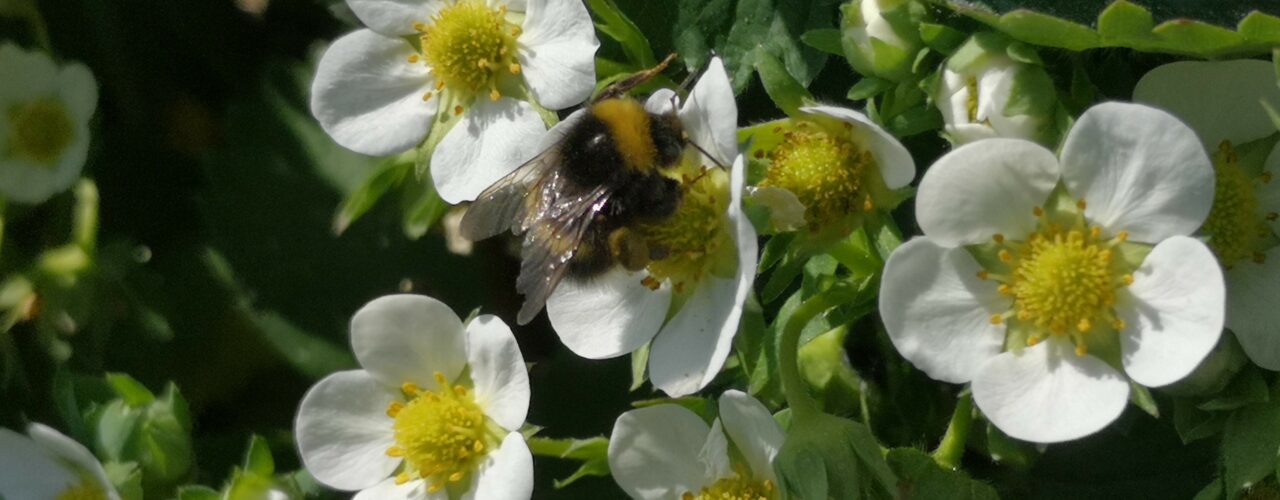
POLLIBRING - Production systems and density of pollinating insects in raspberry production
In our national strategy for pollinators, signed by eight ministers and approved by the Norwegian Parliament in 2018 it is concluded that pollinators are important for the agriculture.
The total value of pollinating in Norwegian food production is unknown, but the Norwegian Agriculture Agency estimated in 2017 that the total production value for oilseeds, fruits and berries, and legumes to be almost 900 mill NOK. Known pollinators are bees inclusive bumblebees, mosquitoes, beetles, butterflies, hoverflies and other flies. For the agricultural sector the bees are expected to be of most importance. In Norway there are identified 208 different spices of bees that includes the honeybees (Apis mellifra), 35 different bumblebees (Bombus spp) and 172 spices of wild bees. The honeybees can contribute a lot to of pollination, however, the wild spices can do as well. However, little is known about how much the production system (organic vs. conventional) is affecting the diversity of pollinators and the effect of pollination of food plants.
In this pre project we will therefore document the diversity of pollinating insects in raspberry fields in Møre and Romsdal County, and study how effective the raspberry flowers are been pollinated. In two organic and two conventional raspberry field it will be observed in delimited routes what pollinators are visiting the flower and how many flowers each insect is visiting. These raspberry fields are located in Tingvoll (2 fields), Valldal and Rovde. It will also be studied which factors promote the pollinator insects in the raspberry fields to give advice what can be done to develop the populations. Hopefully will this pre project lead to a main project where we in more detail can study what factors of the different production systems influence on the pollinating insects in raspberry production.
